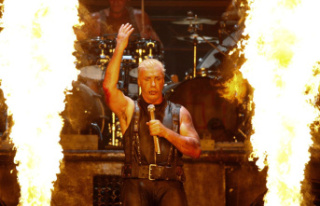Dependence on authoritarian regimes is currently our biggest problem. A radical de-ideologization of energy policy has taken place in Germany since the 1990s. Since then, energy has only been considered an economic good, like cars or household appliances, that is freely traded on the market.
But Vladimir Putin sees things differently. Gorbachev stopped 80 percent of gas supplies for Lithuania in 1990 when the country wanted independence. Two years later, Helmut Kohl's friend Boris Yeltsin briefly turned off the gas supply in Estonia.
While neighboring countries suffered, Germany stuck its head in the sand. And repeatedly emphasized that the risks of importing energy from Russia were manageable. Germany has so far relied on Russian gas, Middle Eastern oil and solar cells from China. However, all of these energy sources have one thing in common: they are closely linked to human rights violations.
Dependence on authoritarian regimes is never a good idea. You pay with people's livelihoods, with financial burdens on the state and with risks to national security. Climate protectors now want a rapid expansion of wind and solar energy. But that's wishful thinking, at least in the short term.
"Solar and wind energy is not enough, either way," says Rainer Klute, Chairman of Nuklearia e.V. In Germany, too much reliance has been placed on gas when it comes to renewable energies and now, in view of the delivery exercise throttling, there is no other option than nuclear power.
Source: WORLD / Lena Moselle
According to the Federal Statistical Office, in 2021 wind power and photovoltaics only accounted for around 30 percent of Germany's power supply. And those who rely on solar energy rely on slave labor in Xinjiang in China. About 45 percent of the global supply of polysilicon for the solar industry comes from this region.
What if Beijing decides to use the switch to renewable energy as a bargaining chip – much like Russia? Will Germany then ignore the manufacturing conditions of such products and support forced labor?
It looks as if there is currently no satisfactory solution to Germany's energy problem. Because Germany doesn't seem to understand that it can't have everything: freedom and maintaining the rule of law have their price. Otherwise, Germany will have to sacrifice freedom and rely on authoritarian regimes.
Glacier Kwong alternates writing this column with Joshua Wong. The two young activists from Hong Kong are fighting against the growing influence of China in their homeland. Since Wong is currently imprisoned, Kwong is continuing this column alone for the time being.












